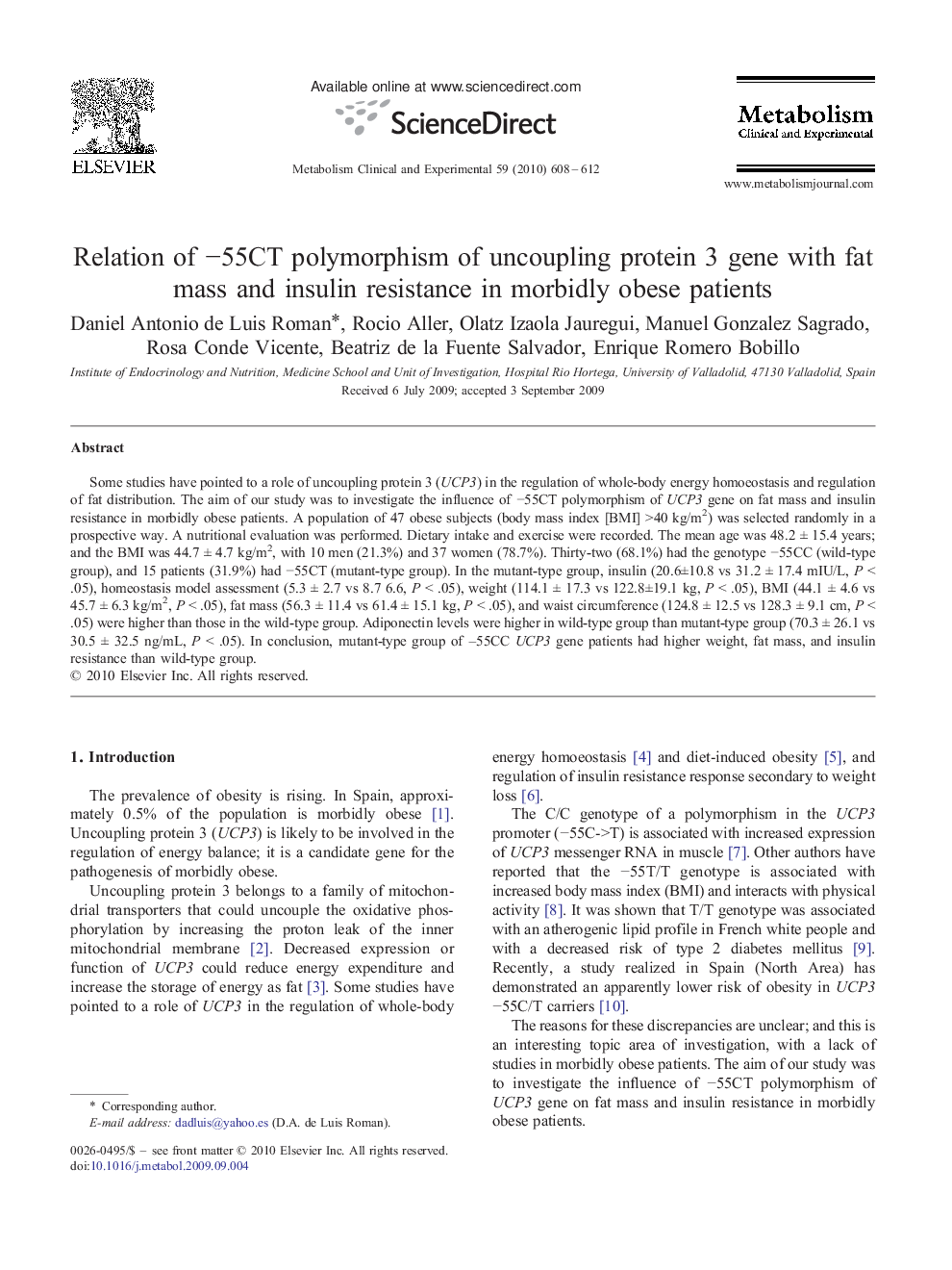| کد مقاله | کد نشریه | سال انتشار | مقاله انگلیسی | نسخه تمام متن |
|---|---|---|---|---|
| 2806705 | 1157130 | 2010 | 5 صفحه PDF | دانلود رایگان |
عنوان انگلیسی مقاله ISI
Relation of â55CT polymorphism of uncoupling protein 3 gene with fat mass and insulin resistance in morbidly obese patients
دانلود مقاله + سفارش ترجمه
دانلود مقاله ISI انگلیسی
رایگان برای ایرانیان
موضوعات مرتبط
علوم زیستی و بیوفناوری
بیوشیمی، ژنتیک و زیست شناسی مولکولی
علوم غدد
پیش نمایش صفحه اول مقاله

چکیده انگلیسی
Some studies have pointed to a role of uncoupling protein 3 (UCP3) in the regulation of whole-body energy homoeostasis and regulation of fat distribution. The aim of our study was to investigate the influence of â55CT polymorphism of UCP3 gene on fat mass and insulin resistance in morbidly obese patients. A population of 47 obese subjects (body mass index [BMI] >40 kg/m2) was selected randomly in a prospective way. A nutritional evaluation was performed. Dietary intake and exercise were recorded. The mean age was 48.2 ± 15.4 years; and the BMI was 44.7 ± 4.7 kg/m2, with 10 men (21.3%) and 37 women (78.7%). Thirty-two (68.1%) had the genotype â55CC (wild-type group), and 15 patients (31.9%) had â55CT (mutant-type group). In the mutant-type group, insulin (20.6±10.8 vs 31.2 ± 17.4 mIU/L, P < .05), homeostasis model assessment (5.3 ± 2.7 vs 8.7 6.6, P < .05), weight (114.1 ± 17.3 vs 122.8±19.1 kg, P < .05), BMI (44.1 ± 4.6 vs 45.7 ± 6.3 kg/m2, P < .05), fat mass (56.3 ± 11.4 vs 61.4 ± 15.1 kg, P < .05), and waist circumference (124.8 ± 12.5 vs 128.3 ± 9.1 cm, P < .05) were higher than those in the wild-type group. Adiponectin levels were higher in wild-type group than mutant-type group (70.3 ± 26.1 vs 30.5 ± 32.5 ng/mL, P < .05). In conclusion, mutant-type group of -55CC UCP3 gene patients had higher weight, fat mass, and insulin resistance than wild-type group.
ناشر
Database: Elsevier - ScienceDirect (ساینس دایرکت)
Journal: Metabolism - Volume 59, Issue 4, April 2010, Pages 608-612
Journal: Metabolism - Volume 59, Issue 4, April 2010, Pages 608-612
نویسندگان
Daniel Antonio de Luis Roman, Rocio Aller, Olatz Izaola Jauregui, Manuel Gonzalez Sagrado, Rosa Conde Vicente, Beatriz de la Fuente Salvador, Enrique Romero Bobillo,